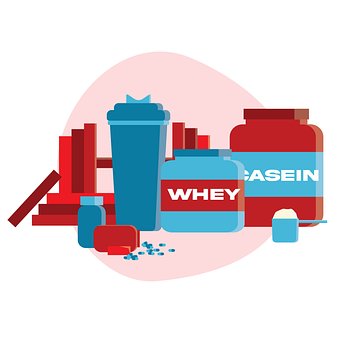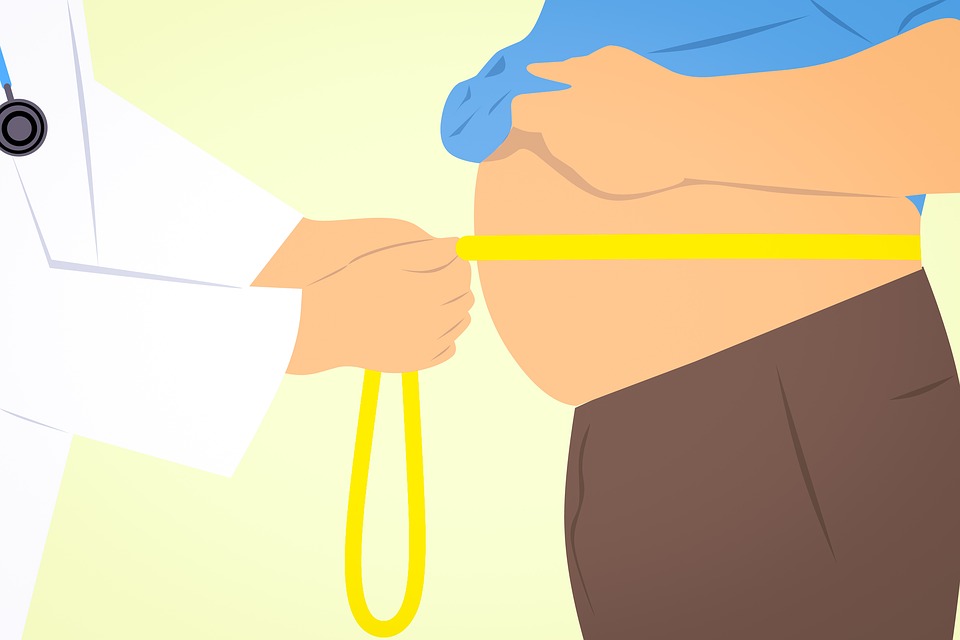
What is the definition of overweight and obesity?
More than 4 in 10 adults in the United States suffer from obesity, and nearly 1 in 10 are severely obese.
The BMI is a measure of your weight in relation to your height that is used by health care professionals to define overweight and obesity.
If your body mass index (BMI) is between 25 and 30, you are considered overweight. Having a BMI of 30 or more is defined as obesity. Use the BMI calculator to find out if you are overweight, obese, or have severe obesity, which can present greater health risks. Your health care professional can evaluate your individual risk for developing health problems due to your weight.
If you’re seeking help with regards to your weight, a balanced diet and consistent exercise may be able to assist you in both losing weight and preventing weight gain in the future. If these lifestyle changes don’t seem to be enough, your doctor may prescribe medication as part of your weight control plan.
How do weight management medications work?
Drugs used to treat obesity work in different ways. Some make patients feel less hungry, while others make it harder for the body to absorb fat.
What are the benefits of using prescription medications to lose weight?
Taking prescription medications as part of a lifestyle program that includes healthy eating and increased physical activity can help some people lose more weight and keep it off. On average, people who take these medications lose 3 to 12 percent more of their starting body weight than those who don’t after one year.
Research indicates that some individuals who take medication prescribed for weight management can lose 10% or more of their original weight. The amount of weight loss varies depending on the person and the medication.
If you lose 5%-10% of your body weight, it may help improve your health in various ways. For example, it can lower blood sugar, blood pressure, and triglyceride levels. Additionally, weight loss can also alleviate other health problems that are associated with being overweight or obese, such as joint pain and sleep apnea. Generally, most weight loss occurs within the first 6 months of taking the medication.
It’s important to note that few of these treatments have any basis in science and some could have serious health consequences. You should always discuss any diet or supplement changes with a doctor or registered dietitian.
We’ve reviewed the science behind 12 popular weight loss pills and supplements, to help you decide which is the best for you.
1. Garcinia cambogia extract
This fruit extract became popular after Dr. Oz talked about it on his show.
It’s a small, green fruit shaped like a pumpkin. The fruit’s skin contains hydroxycitric acid, which is the active ingredient in garcinia cambogia extract. Garcinia cambogia extract is a diet pill that is marketed as a way to help with weight loss.
Animal studies have shown that it can decrease the production of a fat-producing enzyme and increase serotonin levels, which could help to reduce cravings.
They ruled out any studies that were not randomized controlled trials, which are considered the gold standard of research. The effectiveness of herbal medicines, including garcinia cambogia, was explored in one meta-analysis by researchers who looked through four electronic research databases. In order to be included in the meta-analysis, the studies had to be randomized controlled trials, which are considered to be the best quality of research.
The authors of 54 randomized controlled trials involving overweight or obese adults found that taking garcinia cambogia did not lead to any greater weight loss or reduction in body fat percentage than taking a placebo.
A 2020 review that looked at eight trials on garcinia cambogia found that, on average, it caused weight loss of 1.34 kg (about 3 pounds).
These include: The side effects of garcinia cambogia have been studied within the last few years and some serious side effects have been found. These include:
A study from 2018 documented four cases of women who experienced sudden liver failure after taking weight loss supplements containing garcinia cambogia.
There have also been reports of liver impairment and some episodes of mania in people who have taken garcinia cambogia.
Even though garcinia cambogia may contribute to modest weight loss, the effects are quite small and may not be noticeable.
2. Hydroxycut
Hydroxycut has been around for more than a decade and is one of the most popular weight loss supplements in the world.
The brand makes several products, but the most common is simply called “Hydroxycut.”
How it works: It contains several ingredients claiming to help with weight loss, including caffeine and a few plant extracts such as green coffee extract.
Effectiveness: A 2011 meta-analysis of five clinical trials found that supplementation with C. canephora robusta, or green coffee extract, one of the key ingredients in Hydroxycut, led to about a 5.5-pound (2.47-kg) weight loss compared to the placebo.
Side effects: If you are sensitive to caffeine, you may experience anxiety, jitteriness, tremors, nausea, diarrhea, and irritability.
Hydroxycut products were removed from shelves as a result of cardiovascular risks in 2004 and hepatotoxicity in 2009.
Acute liver injury has also been connected with using Hydroxycut supplements.
There are few large-scale studies on this supplement and no data on its long-term effectiveness. More research is needed to determine effectiveness and safety concerns.
3. Green coffee bean extract
Green coffee beans are simply coffee beans that haven’t been roasted.
They contain two substances believed to help with weight loss: caffeine and chlorogenic acid.
How it works: Caffeine can increase fat burning, and chlorogenic acid can slow the breakdown of carbohydrates in the gut.
Effectiveness: Several human studies have shown that green coffee bean extract could help people lose weight.
A meta-analysis of all the current randomized control trials on green coffee bean extract’s effect on obesity found that the supplement has a significant impact on minimizing body mass index.
Other benefits: Green coffee bean extract may help lower blood sugar levels and reduce blood pressure. It is also high in antioxidants.
Side effects: It can cause the same side effects as caffeine. The chlorogenic acid it contains may also cause diarrhea, and some people may be allergic to green coffee beans.
Green coffee bean extract may cause modest weight loss, but keep in mind that many of the studies that have found this have been industry-sponsored.
4. Caffeine
Caffeine is the most commonly consumed psychoactive substance in the world.
It is found naturally in coffee, green tea, and dark chocolate and is added to many processed foods and beverages.
Because caffeine is thought to be a metabolism booster, companies commonly add it to commercial weight loss supplements.
How it works: One study discussed the effect of caffeine on regulating body weight by increasing energy expenditure — essentially meaning you burn more calories via increased fat breakdown as well as through a process of body heat production called thermogenesis.
Effectiveness: Some studies show that caffeine can cause modest weight loss in humans.
Side effects: In some people, high amounts of caffeine can cause anxiety, insomnia, jitteriness, irritability, nausea, diarrhea, and other symptoms. Caffeine is also addictive and can reduce the quality of your sleep.
There is no need to take a supplement or a pill containing caffeine. The best sources are quality coffee and green tea, which also have antioxidants and other health benefits.
Caffeine could help boost metabolism and enhance fat burning in the short term. However, a tolerance to the effects may develop quickly.
5. Orlistat (Alli)
Orlistat is a pharmaceutical drug sold over the counter under the name Alli and via prescription as Xenical.
How it works: This weight loss pill works by inhibiting the breakdown of fat in your gut, meaning that you take in fewer calories from fat.
Effectiveness: A 2003 meta-analysis of studies found that people taking orlistat for 12 months in combination with lifestyle changes saw a 2.9% greater weight reduction than the placebo group.
Other benefits: Orlistat has been shown to reduce blood pressure slightly and may reduce the risk of developing type 2 diabetes when used alongside lifestyle changes.
Side effects: This drug has many digestive side effects, including loose, oily stools; flatulence; and frequent bowel movements that are hard to control. It may also contribute to deficiency in fat-soluble vitamins such as vitamins A, D, E, and K.
Following a low fat diet while taking orlistat is often recommended to minimize side effects. Interestingly, a low carb diet (without medication) has been considered as effective as orlistat and a low fat diet combined.
Both diets were as effective for weight loss but showed no significant differences in blood sugar and blood lipid levels. However, orlistat combined with a low fat diet was more effective at lowering blood pressure.
Warnings:
- Rare cases of severe liver injury have been reported
- Avoid taking with cyclosporine
6. Liraglutide (Saxenda)
Liraglutide is given daily by injection.
How it works: It mimics a hormone called glucagon-like peptide-1 (GLP-1) that targets areas of the brain that regulate appetite and food intake. At a lower dose under a different name, Victoza, this drug was FDA-approved to treat type 2 diabetes.
Side effects: This may cause nausea, diarrhea, constipation, abdominal pain, headache, and/or increased heart rate.
Warnings:
May increase the chance of developing pancreatitis
Has been found to cause a rare type of thyroid tumor in animals
7. Glucomannan
Glucomannan is a type of fiber found in the roots of the elephant yam, which is also called konjac.
How it works: Glucomannan absorbs water and becomes gel-like. It “sits” in your gut and promotes a feeling of fullness, helping you eat fewer calories.
Effectiveness: One clinical trial showed that taking glucomannan for 60 days could lower body weight among participants with overweight, but only if they were consistently taking the supplement.
Other benefits: Glucomannan is a fiber that can feed the friendly bacteria in the intestine. It can also lower blood sugar, blood cholesterol, and triglycerides and works effectively against constipation.
Side effects: It can cause bloating, flatulence, and soft stools and can interfere with some oral medications if taken at the same time.
It is important to take glucomannan about half an hour before meals, with a glass of water.
Studies show that the fiber glucomannan, when combined with a healthy diet, can help people lose weight. It also leads to improvements in various health markers.
8. Meratrim
Meratrim is a relative newcomer on the diet pill market.
It’s a combination of two plant extracts — Sphaeranthus indicus and Garcinia mangostana — that may change the metabolism of fat cells.
How it works: It claims to make it harder for fat cells to multiply, decrease the amount of fat they pick up from the bloodstream, and help them burn stored fat.
Effectiveness: Very few studies about Meratrim exist. One study involved 60 people with obesity placed on a strict 2,000-calorie diet and increased physical activity, with either Meratrim or a placebo.
After 8 weeks, the Meratrim group had lost 11 pounds (5.2 kg) and 4.7 inches (11.9 cm) off their waistlines.
Another study suggested that Meratrim had long lasting effects on appetite suppression.
Side effects: No side effects have been reported.
One study showed that Meratrim caused weight loss and had a number of other health benefits. However, the study was industry-sponsored, and more research is needed.
9. Green tea extract
Green tea extract is a popular ingredient in many weight loss supplements. This is because numerous studies have shown that the main antioxidant it contains, EGCG, may aid fat burning.
How it works: Green tea extract is believed to hinder enzymes such as pancreatic lipase, which, when combined with reduced fat absorption, can be an effective way to treat obesity.
Effectiveness: Many human studies have shown that green tea extract, when paired with exercise, can increase fat burning and cause fat loss, especially in the belly area.
Side effects: Green tea extract is generally well tolerated. It does contain some caffeine and may cause symptoms in people who are sensitive to caffeine.
Additionally, all the health benefits of drinking green tea may also apply to green tea extract.
Green tea and green tea extract could increase fat burning slightly and may help you lose belly fat.
10. Conjugated linoleic acid (CLA)
CLA has been a popular fat loss supplement for years.
It is known as one of the “healthier” trans fats and is found naturally in some fatty animal-derived foods like cheese and butter.
How it works: CLA may reduce appetite, boost metabolism, and stimulate the breakdown of body fat.
Effectiveness: In a major review of 13 studies, researchers found that CLA caused weight loss of about 1.1 pounds (0.52 kg) compared with a placebo. This number increased to 2.3 pounds (1.05 kg) in people over age 44.
Side effects: CLA can cause various digestive side effects and may have harmful effects over the long term, potentially contributing to fatty liver, insulin resistance, and increased inflammation.
CLA could be an effective weight loss supplement, but it may have harmful effects in the long term. The small amount of weight loss it may lead to is not worth the risk.
11. Semaglutide (Wegovy)
Semaglutide is given weekly by injection.
How it works: It mimics a hormone called glucagon-like peptide-1 (GLP-1) that targets areas of the brain that regulate appetite and food intake. Under different names and dosages, this drug was FDA-approved to treat type 2 diabetes as an injectable medication (Ozempic) and as an oral pill (Rybelsus).
Side effects: This may cause nausea, diarrhea, vomiting, constipation, abdominal (stomach) pain, headache, and/or fatigue
Warnings:
Do not use in combination with other semaglutide-containing products, other GLP-1 receptor agonists, or other products intended for weight loss, including prescription drugs, over-the-counter drugs, or herbal products
May increase the chance of developing pancreatitis
Has been found to cause a rare type of thyroid tumor in animals
12. Bitter orange/synephrine
A type of orange called bitter orange contains the compound synephrine.
However, the FDA has since banned ephedrine as a weight loss ingredient because of serious side effects.
How it works: Synephrine has similar mechanisms to ephedrine but is less potent. It could help reduce appetite and increase fat burning.
Effectiveness: Very few studies have been done on synephrine, but many studies have found that ephedrine can cause significant short-term weight loss.
Synephrine is a fairly potent stimulant and is potentially effective for weight loss in the short term. However, the side effects can be serious, so it should be used only with extreme caution and with a doctor’s supervision.
Prescription medications for weight loss
Some prescription weight loss pills have had some success.
The most common ones are Contrave and Phentermine.
However, keep in mind that this is an average. Some people may lose much more weight than that, while others may lose less. A 2014 review found that prescription weight loss pills don’t work as well as you might think. On average, they may help you lose 3-9% of your body weight compared to a placebo. However, keep in mind that this is an average. Some people may lose much more weight than that, while others may lose less.
This text is saying that weight loss pills are only effective when combined with a healthy diet, and that they are not likely to be a helpful long-term solution for obesity. They also have many possible side effects.
Will I regain some weight after I stop taking weight management medication?
After you stop taking weight management medication, you will likely regain some weight. To avoid gaining back all the weight, or to even lose more weight, start developing healthy eating habits and become more active physically.
The federal government recommends that people do at least 150 minutes of moderate-intensity aerobic activity every week, as well as at least 2 days of muscle-strengthening activities. If you’re trying to lose weight, you may need to do more than 300 minutes of moderate-intensity activity per week.
Tips for taking weight management medication
- Follow your health care professional’s instructions about weight management medications.
- Buy your medication from a pharmacy or online distributor approved by your health care professional.
- Only take weight management medication to support your healthy eating and physical activity program.
- Know the side effects and warnings before taking any medication.
- If you are not losing weight after 12 weeks on the full dose of your medication, ask your health care professional whether you should stop taking it.
- Talk with your health care professional about any other medications you are taking, including supplements and vitamins, when considering weight management medications.
- Never take weight management medications during pregnancy or if you are planning a pregnancy.
What other medications for weight loss may be available in the future?
Researchers are studying new medications and combinations of medications that may be safer and more effective for people who are overweight or have obesity.
Future drugs may use new strategies, such as
- regulating several gut hormones at the same time
- targeting specific genes that cause obesity
- allowing people to lose body fat without losing muscle during weight loss
- changing bacteria in the gut to control weight
The bottom line
The strongest evidence for weight loss pills are:
- weight loss: glucomannan, CLA, and orlistat (Alli)
- increased fat burning: caffeine and green tea extract
Many health professionals advise against orlistat and CLA because of their unpleasant and harmful side effects respectively.
The three supplements that are mentioned are not extremely effective and are found in many common foods and drinks.
No supplement or pill works very well for weight loss. They may help you lose a few pounds, but they don’t have a big effect.
There is no one-size-fits-all answer to the question of how much weight you should lose. The best way to determine a healthy weight for you is to focus on mindful eating and safe calorie deficits. Increasing your physical activity will also help you lose weight. These methods are more effective than any diet pills.














